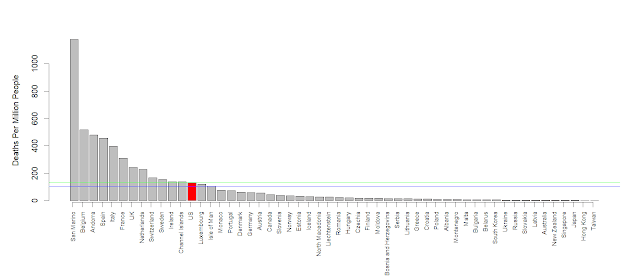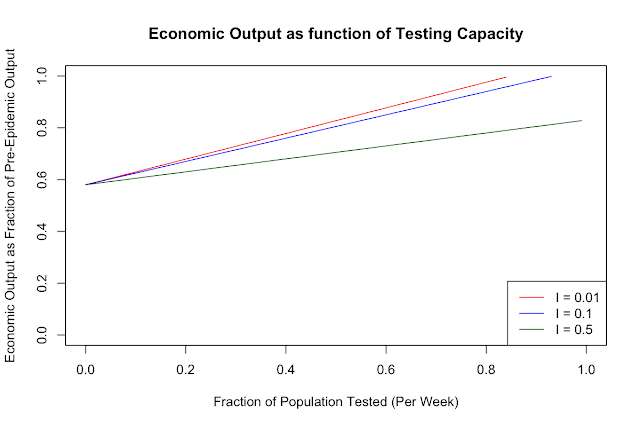How "Political" Should the Pandemic Be?

This being an election year in the US, the ongoing pandemic is inevitably going to become a major political issue going forward, more retrospectively than prospectively. Prospectively - the US's response going forward from this fall onward, is - for better worse - largely on autopilot or out of the hands of the federal government (e.g., there is not a whole lot the president will be able to do to expedite the development of vaccines). It will be widely believed - indeed already is - that the president (and congress) and the general political characteristics of the US played a major role - either positive or negative - in how well the US responded to the crisis. I think this general belief is false. I was partly motivated to write this after reading a couple pieces in the Atlantic (which I usually have the good sense to avoid), one by Tim Yong expressing, among other things, the belief in the importance of national leadership in responding to the crisis and also at various points su...

